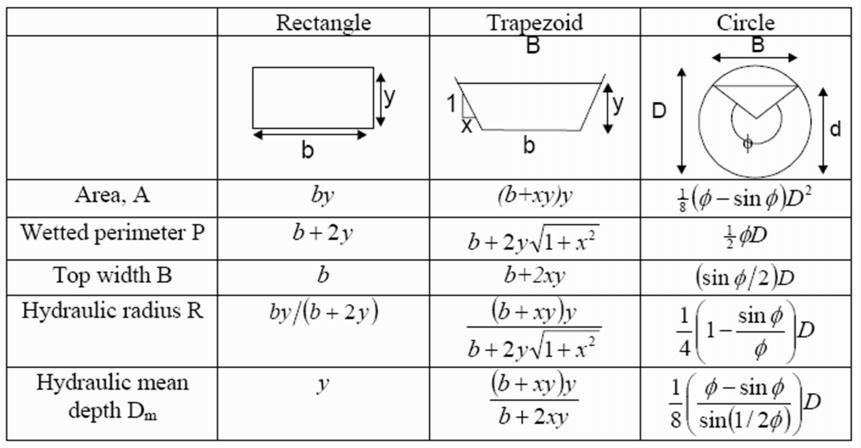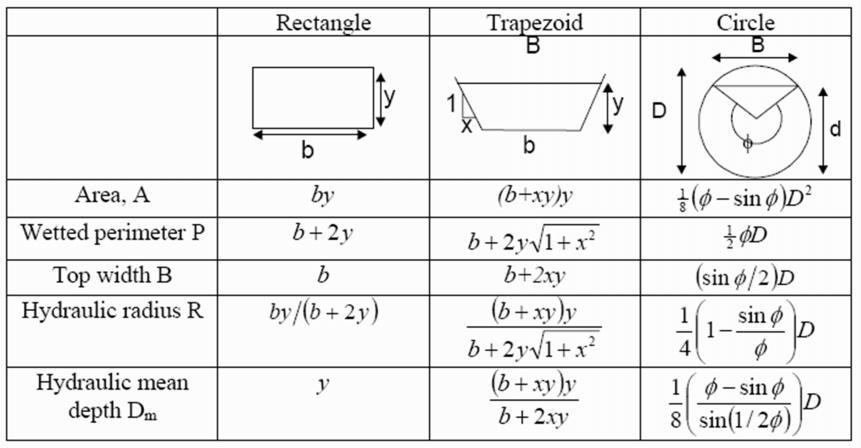Chapter: civil : Applied Hydraulic Engineering: Uniform Flow
Properties of open channels (Applied Hydraulic Engineering: Uniform Flow)

Properties of open channels
Artificial channels
These are channels made
by man. They include irrigation canals, navigation canals, spillways, sewers,
culverts and drainage ditches. They are usually constructed in a regular
cross-section shape throughout - and are thus prismatic channels (they don't
widen or get narrower along the channel.
In the field they are
commonly constructed of concrete, steel or earth and have the surface roughness'
reasonably well defined (although this may change with age - particularly grass
lined channels.) Analysis of flow in such well defined channels will give
reasonably accurate results.
Natural channels
Natural channels can be
very different. They are not regular nor prismatic and their materials of
construction can vary widely (although they are mainly of earth this can
possess many different properties.) The surface roughness will often change
with time distance and even elevation.
Consequently
it becomes more difficult to accurately analyse and obtain satisfactory results
for natural channels than is does for man made ones. The situation may be
further complicated if the boundary is not fixed i.e. erosion and deposition of
sediments.
Geometric properties necessary for
analysis
For
analysis various geometric properties of the channel cross-sections are
required. For artificial channels these can usually be defined using simple
algebraic equations given y the depth of flow. The commonly needed geometric
properties are shown in the figure below and defined as:
Depth(y)-the
vertical distance from the lowest point of the channel section to the free
surface.
Stage
(z) - the vertical distance from the free surface to an arbitrary datum
Area
(A) - the cross-sectional area of flow, normal to the direction of flow
Wetted
perimeter (P) - the length of the wetted surface measured normal to the
direction of flow.
Surface
width (B) - width of the channel section
at the free surface
Hydraulic
radius (R) - the ratio of area to wetted perimeter ( A/P )
Hydraulic
mean depth (Dm) - the ratio of area to surface width ( A/B )

Related Topics